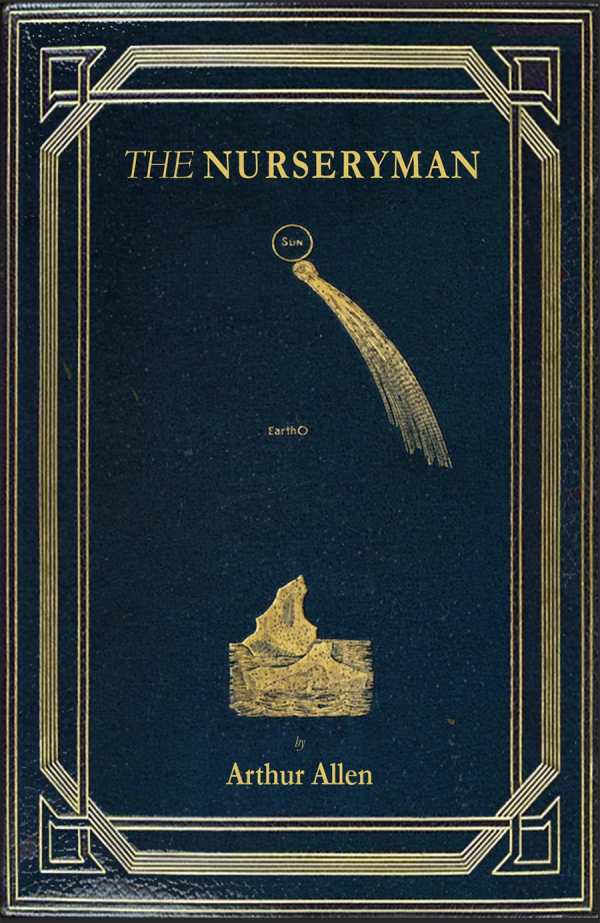
The Nurseryman
The characters of Arthur Allen’s The Nurseryman follow the trail of Martin Frobisher, explorer of the great North, who “discovered” Meta Incognita, now part of Baffin Island. Written in sixteenth-century style, the book’s historically inspired and strange series of poems act as a ship’s log of an ill-fated trip that took place a year after Frobisher’s last voyage north, where he tried and failed to establish a colony.
Within the text, these accounts are alleged to have been “written in paper and canvas and included in bawles of wax sealed with her Majesties signet.” How they were discovered remains a mystery, but as a result of water damage, the documents form a palimpsest, superimposing speaker over speaker and voice over voice to create a document that comments on itself in ways both startling and poetic. A number of entries might be read across the page or down one column and back up to the next, and each creates a new reading.
Largely chronological in structure, the story moves from the ships being sent off by the queen to those emerging in the frozen North, where death awaits. As the poems progress, animals, supplies, and people are lost, and the rigors of living in the ice become more and more complex and difficult. An anonymous sailor calls it the “dark Northland / the man-eating, the / fellow-drowning place.”
Though there is much for the sailors to lament, the language they use is often haunting. When an iceberg tumbles into the sea, ’the Sea turnt to smoke & vapor“ and the impact ’Shook knots of crystal / free from the rigging.“ The reports paint a brutal and unforgiving landscape where everything from tears to watchmen eventually becomes prey to insatiable ice.
The Nurseryman is a rare and fascinating beast—part historical text, part poetry, and part doomed adventure tale.
Reviewed by
Camille-Yvette Welsch
Disclosure: This article is not an endorsement, but a review. The publisher of this book provided free copies of the book to have their book reviewed by a professional reviewer. No fee was paid by the publisher for this review. Foreword Reviews only recommends books that we love. Foreword Magazine, Inc. is disclosing this in accordance with the Federal Trade Commission’s 16 CFR, Part 255.
